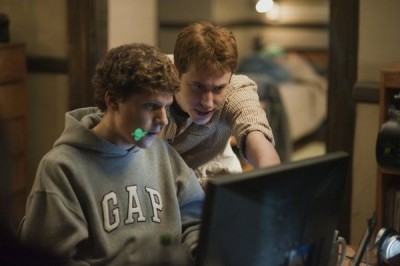“…virtually all of the practices that nearly wrecked the global economy back in 2008 were legal—all of which goes to prove that just because something is legal doesn’t make it ethical or right… So the question isn’t “why?” but “why not?” If the only thing standing between you and millions, even billions, is other people’s disapproval, why not do what you want to do?”
Social Network the Movie- Business Ethics
The following is an excerpt from Breakpoint discussing Business Ethics. The question that is asked is:
If it is legal – does that make it ethical?
Thought it was interesting so wanted to share here. Enjoy.
Facebook’s Beginnings in The Social Network
Even before the critically acclaimed film The Social Network opened in theaters, there was one big financial winner: Newark, New Jersey’s public schools.
While critics were screening the movie, Facebook founder Mark Zuckerberg donated $100 million to the struggling school system. Not only that, he made the announcement on Oprah.
Apparently, Zuckerberg was looking for a little bit of good PR. He’s concerned that people who see the film may question his personal ethics. The more important concern ought to be, however, what the film says about business ethics in our culture.
I personally don’t have an opinion on whether the $100 million donation was a PR move versus perhaps something he wanted to do all along. Maybe his PR people told him to do it now versus later. Either way, I do want to acknowledge that this is a very nice gesture on his part and definitely hope to see more of it in the future.
- What are your thoughts?
- Do you think it was a PR move? Or do you think it was intended all along? or both?
The Social Network, based on the book The Accidental Billionaires by Ben Mezrich, tells what’s been called a “creation myth” about the wildly successful Facebook. The “myth” alternates scenes from Zuckerberg’s days at Harvard and depositions taken in connection with two lawsuits filed against him by former schoolmates.
One lawsuit alleged that that Zuckerberg stole the plaintiffs’ idea. The other lawsuit was brought by Zuckerberg’s best friend, who accused Zuckerberg of cheating him out of his share of Facebook.
Well, regardless of the legal merits of the allegations, Zuckerberg has reason to be concerned: His actions depicted in the film ranged from merely duplicitous to outright treacherous.
While the filmmakers have acknowledged taking some creative license, Zuckerberg’s ruthlessness is well-documented, which prompts the central question of the film: Why? In the film, the answer is that he’s an insecure outsider who wants to be one of the “cool kids.” Others have speculated that he suffers from autism spectrum disorder, which is unfair to autistic people: They may be socially awkward, but they are the farthest thing from ruthless.
 Personal Failure or Broken Culture or Both?
Personal Failure or Broken Culture or Both?
This is where it get’s interesting. Everything Zuckerberg did was very legal. His lawyers made sure of that. but does it make it right? But if it’s legal why not? Interesting to think about.
Focusing on Zuckerberg’s foibles misses the point: The most important failure wasn’t personal but cultural. Every one of the actions depicted in the film was arguably legal: You don’t have a proprietary interest in an idea. Zuckerberg’s friend signed away his interest in Facebook because he wrongly thought that Zuckerberg’s lawyers were looking after his interests as well.
Similarly, virtually all of the practices that nearly wrecked the global economy back in 2008 were legal—all of which goes to prove that just because something is legal doesn’t make it ethical or right. Any lawyer worth his hourly billings can find a way to exploit weaknesses in the system.
So the question isn’t “why?” but “why not?” If the only thing standing between you and millions, even billions, is other people’s disapproval, why not do what you want to do? Especially since you can subsequently buy their approval with a check and an appearance on Oprah?
Of course, if this becomes normative, then the kind of trust that makes free markets possible would dry up, which is exactly what happened in the aftermath of sub-prime crisis. Lenders have money to lend—what they lack is confidence in borrowers’ ability or willingness to repay.
What is your take? Thoughts?
- Love to here your thoughts on this matter?
- Are you going to watch the movie? If you have, how was it?
2 Comments
I think that this practice in more the norm than the exception. Yes a good lawyer can do almost anything. What were the practices that nearly wrecked the economy in 2008? I have not heard this.
Thanks. Sheri
In a world of fast, the most important facts are being lost…. Our children’s ability to see the worth of others or themselves. The media no longer explains the facts- They expound the fringe left and right of society. They are missing the people caught in the middle of reality, not pleased by the lack of respect shown to humanity by the story chasers.